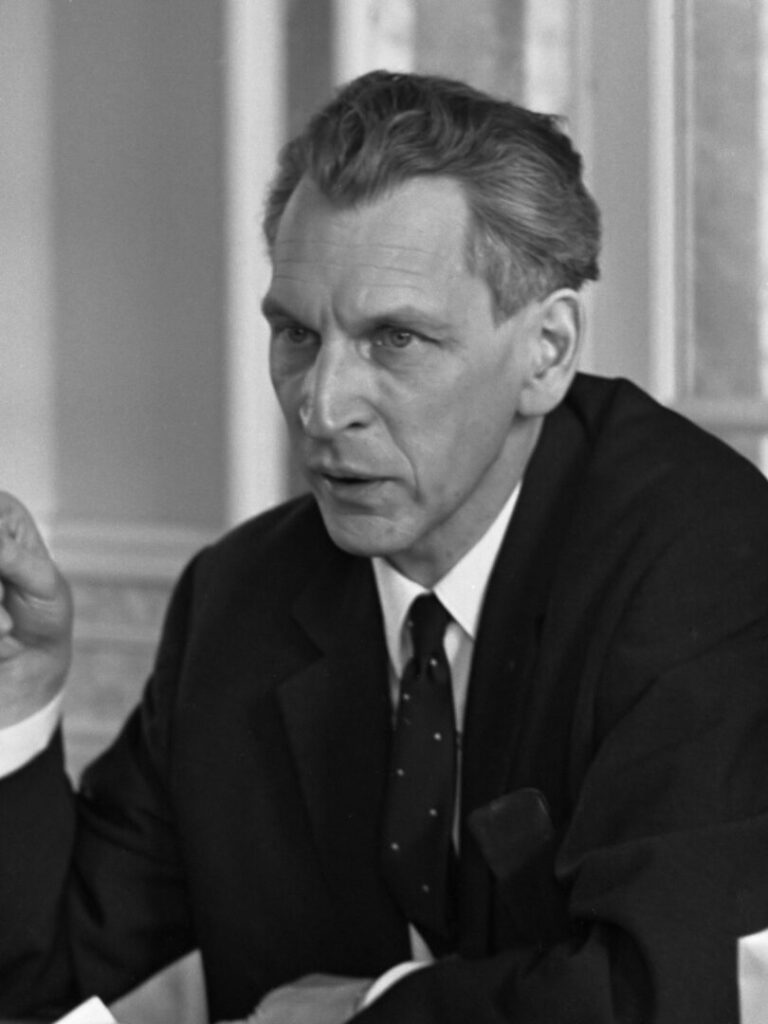In her film, Petra Hörig brings together portraits of men who were imprisoned in the Sachsenhausen concentration camp with the music of Marius Flothuis. The idea was developed in the Visual Collage Workshop with filmmaker Leona Goldstein during the Voices of the Next Generations event at the Sachsenhausen Memorial in September 2022.
On 31 October 2014, I was a guest at a concert with musicians from the chamber orchestra of the Concertgebouw Orchestra Amsterdam at the Sachsenhausen Memorial. The occasion was the 100th birthday of the Dutch composer, musicologist and music critic Marius Flothuis. Several works by him were played.
Marius Flothuis was a prisoner in the subcamp of the Sachsenhausen concentration camp Heinkelwerke from 1943. He survived the imprisonment and the death march in April 1945.
It was the first time for me to hear compositions by Marius Flothuis. For me, his music is marked by the horrors he experienced in the concentration camp. Especially his sad eyes that looked at the viewer in the photo of the programme. I have never forgotten that sad look and see it again and again in the eyes of other fellow prisoners.
Idea: Petra Hörig
Montage: Leona Goldstein
Music: Marius Flothuis “Pour le tombeau d’Orphée” Op. 37 played by Erika Waardenburg, 2022.

Petra’s father Horst Hörig, who was imprisoned in Sachsenhausen Concentration Camp from 1944.
Photo: Petra Hörig
Marius H. Flothuis

Marius Hendrikus Flothuis, born on 30 October 1914 in Amsterdam, was assistant artistic director of the Concertgebouw in Amsterdam since 1937.
During the German occupation, Flothuis refused membership in the Reich Chamber of Culture and stood by his Jewish wife. On 18 September 1943, the Gestapo arrested him for giving illegal concerts and helping Jewish artists in hiding. Initially imprisoned in the Vught concentration camp, in September 1944 the Germans took him to the Heinkel subcamp of the Sachsenhausen concentration camp where he managed to compose despite the forced labour.
After liberation on the death march in May 1945, Flothuis returned home. In 1955 he became artistic director of the Concertgebouw Orchestra. As professor of musicology at the University of Utrecht, he established his Europe-wide reputation as an expert on Mozart. Marius Flothuis died in Amsterdam on 13 November 2001.
Author
Petra Hörig
with additions by Katja Anders



